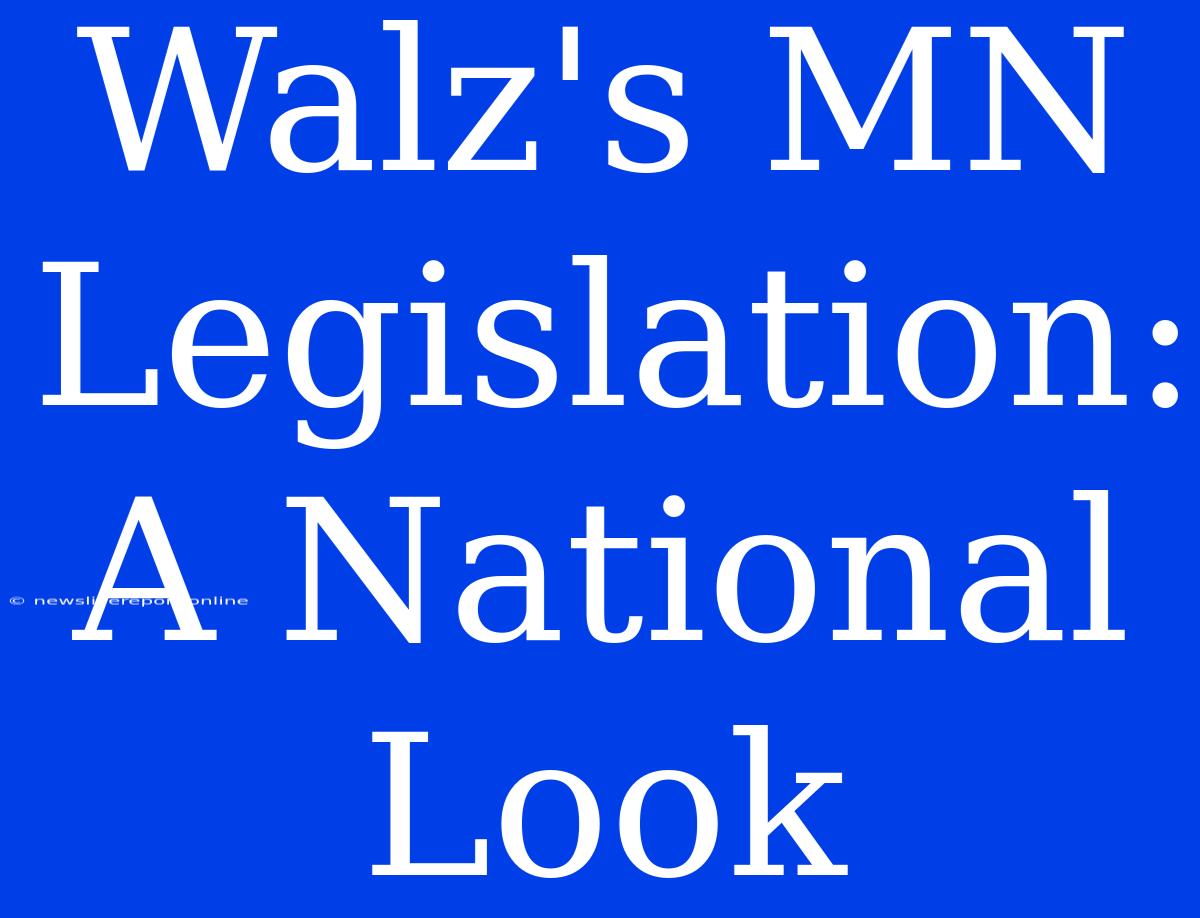Walz's MN Legislation: A National Look
Governor Tim Walz's recent legislative push in Minnesota has garnered national attention, with several bills making waves across the political spectrum.
From gun control to education reform, Walz's agenda is being closely watched, prompting discussions about its potential impact on other states and the national political landscape.
Gun Control:
Walz's signature legislation, a comprehensive gun control package, has been praised by advocates but faced fierce opposition from gun rights groups. The package includes several measures, such as universal background checks, red flag laws, and a ban on assault weapons.
While the legislation faces an uphill battle in the Republican-controlled legislature, its passage could set a precedent for other states. Notably, several states have passed similar legislation in recent years, reflecting a growing national consensus on the need for stricter gun control measures.
Education Reform:
Walz's education reform proposals are also attracting national attention, particularly his push for increased funding for public schools and expanded early childhood education.
The proposed funding increases are seen as a response to the ongoing teacher shortage and a growing need for more resources in struggling schools. These proposals align with national trends toward increased investment in education, with several states adopting similar initiatives.
Economic and Environmental Policies:
Walz has also championed a range of economic and environmental policies, including investments in clean energy and infrastructure projects. His focus on sustainability and job creation echoes the national emphasis on addressing climate change and fostering economic growth.
National Implications:
While Minnesota is not a national trendsetter on all issues, Walz's legislative agenda highlights key areas of national debate, such as gun control, education funding, and environmental policy.
His proposals, particularly the gun control package, could inspire similar legislation in other states. Additionally, his focus on education and economic development serves as a model for states seeking to address similar challenges.
Walz's success in implementing his agenda will be closely watched by policymakers across the country, particularly in states with similar political dynamics. His ability to garner support for his proposals could influence the national conversation on these issues and set a precedent for future legislation.
Further developments in Minnesota's legislative session will be closely monitored by national observers, as Walz's agenda continues to make headlines.

